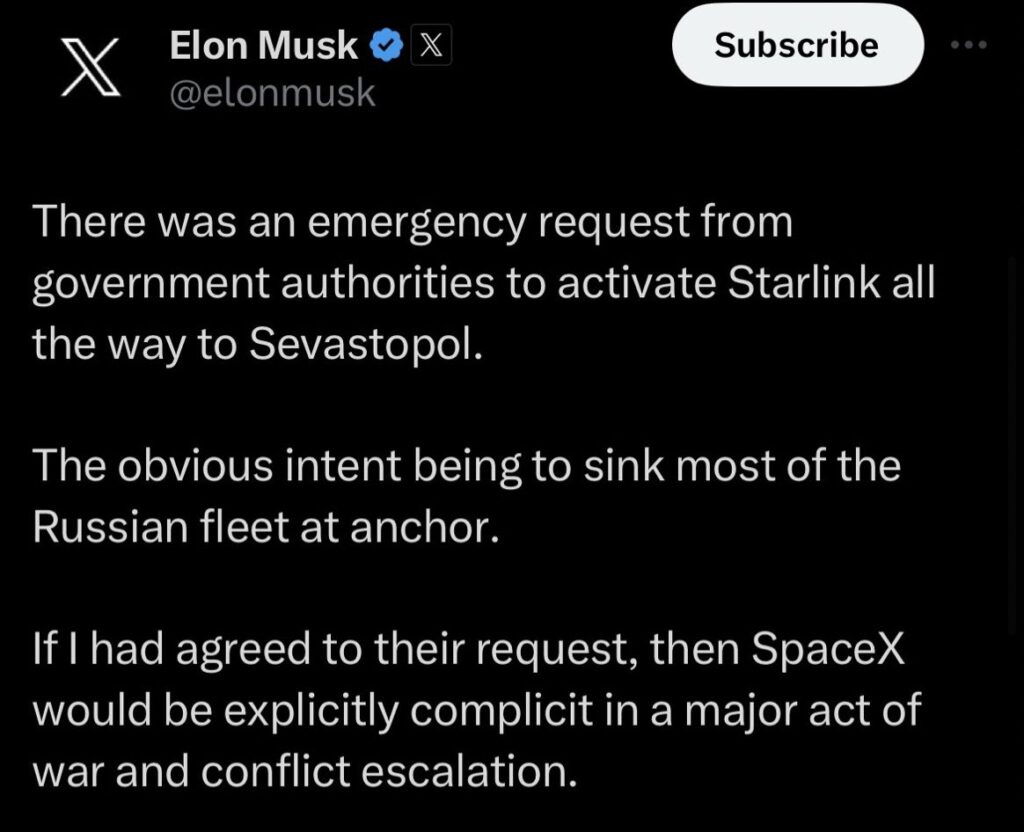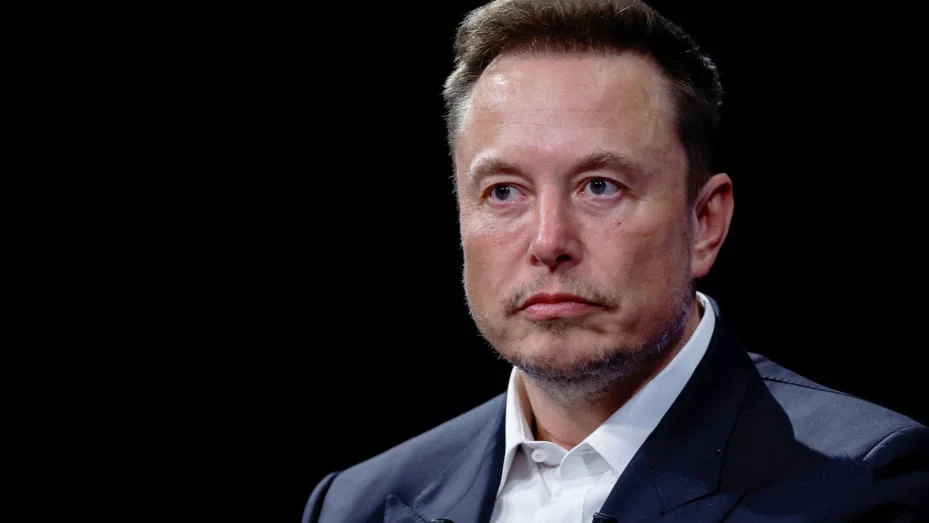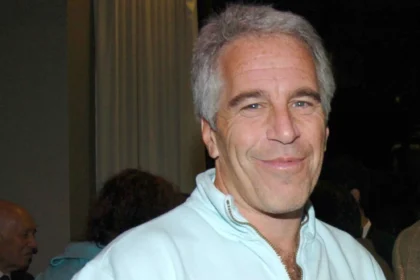Elon Musk, the renowned CEO of Tesla and SpaceX, has found himself at the center of controversy over the involvement of his satellite internet service, Starlink, in the ongoing conflict between Russia and Ukraine. The controversy arose from allegations that Musk instructed engineers to disable Starlink’s satellite network over Crimea, sparking a heated debate and drawing public attention.
The story unfolded last year when a Ukrainian official criticized Musk for allegedly taking actions that could hinder Ukraine’s defense efforts. The accusation stemmed from Musk’s purported directive to deactivate Starlink’s satellite network over Crimea, a move that some claimed was intended to prevent a potential Ukrainian attack on Russian vessels in the region.
Elon Musk’s Perspective:
In response to these allegations, Elon Musk provided his perspective during an interview featured in his upcoming autobiography, titled “Elon Musk” and authored by Walter Isaacson. Musk expressed his frustration with the situation, stating that Starlink was never intended to play a role in military conflicts. He emphasized that the primary purpose of Starlink was to provide internet connectivity for peaceful and constructive activities, such as entertainment and education.

Musk further explained that he was deeply concerned about the potential consequences of the Ukrainian attack on Russian vessels, fearing it might escalate the conflict to a catastrophic level, possibly even leading to nuclear warfare.
The Fallout:
Despite Musk’s efforts to clarify his stance, his comments ignited a firestorm of criticism, particularly from Ukrainian President Volodymyr Zelensky’s top aide, Mykhailo Podolyak. Podolyak took to social media to voice his objections, accusing Musk of allowing Russian warships to target Ukrainian cities by preventing Ukrainian drones from disrupting the Russian fleet through Starlink interference.
The Complex Background:
To understand the context, it’s essential to recognize that Crimea, the Black Sea peninsula, was annexed by Russia from Ukraine in 2014. It serves as a home to Russian warships. Following Russia’s invasion of Ukraine in February 2022, the Black Sea fleet launched missile attacks on Ukrainian coastal cities, intensifying the geopolitical tension in the region.
Starlink’s Crucial Role in Ukraine:
Amid the controversy, Mykhailo Fedorov, Ukraine’s digital minister, confirmed the presence of SpaceX’s Starlink satellites in Ukraine. These satellites have played a pivotal role in providing crucial battlefield communications and connectivity in a challenging environment.
The Diplomatic Engagement:
Elon Musk’s decision regarding Starlink’s role in the conflict also attracted the attention of international leaders. His actions were discussed during a phone call between President Biden’s national security advisor, Jake Sullivan, and Joint Chiefs of Staff US Army General Mark Milley. Additionally, Musk engaged in a text conversation with Minister Fedorov, who implored him to restore Starlink connectivity to enable Ukrainian submarine drones to target Russia’s warship fleet.
Musk’s Concerns:
In his text exchange with Fedorov, Musk expressed his belief that Ukraine’s actions were pushing the situation dangerously close to a major escalation. He argued that if the Ukrainian attacks had succeeded in sinking the Russian fleet, it could have triggered a crisis akin to a “mini Pearl Harbor,” with devastating consequences.
The controversy surrounding Elon Musk’s involvement in the Ukraine-Russia conflict underscores the complexities of technology, geopolitics, and warfare in the modern world. While the debate continues, it remains clear that maintaining a peaceful and constructive role for technology, even in the face of conflict, is a matter of profound importance. As the situation evolves, the world watches closely, mindful of the intricate challenges posed by the convergence of technology and international relations.




